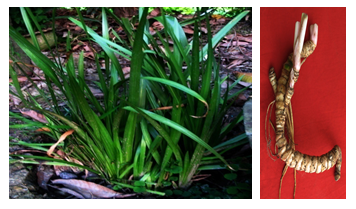| Biography | |
|---|---|
 Prof. G. J. Sharma Department of Botany, Manipur University, India |
|
| Title: In vitro propagation and DNA profiles of diploid and triploid cytotypes of Acorus calamus L. | |
| Abstract: Acorus calamus Linn. (sweet flag) is an important littoral plant widely used in traditional medicine since times immemorial. Four cytotypes, viz., diploid, triploid, tetraploid and hexaploid are found world-wide. Two cytotypes, viz., diploid and triploid are found in Manipur, India. Different cytotypes show wide variations in morphology and chemical composition of essential oils in rhizomes and leaves. The plant is used for anti-spasmodic, anti-diarrhoeic, anti-helminthic, anti-depressant and CNS anxiolytic properties, as tonic, stimulant and aphrodisiac, for treating rheumatism, toothache and respiratory ailments. Chinese medicine suggests its beneficial effects on memory disorder, learning performance and senescence. Bioactive molecules present are acorone, α-asarone, ß-asarone, asaryldehyde, caryophylene, isoasarone, methyl isoeugenol and safrol. β-asarone content varies with ploidy level. Triploids contain 7-7.8% β-asarone as against 73-88% in tetraploids. Diploids do not contain β-asarone which is a known carcinogen.. Clonal propagation and somatic embryogenesis of diploid and triploid cytotypes have been developed using dual-phase culture. Microrhizome induction for propagation has significance in conservational and sustainable development priorities. Accessions across nineteen different populations have been investigated. RAPD and ISSR markers have been employed for understanding genetic variabilities of the species. Amplification of genomic DNAs reveals 35.3% polymorphism. Marker indices and resolving powers indicate that ISSR markers are more efficient. Similarity matrix has been used to construct dendrogram based on UPGMA analysis and grouped accessions into two clusters in tune with ploidy level.
Figure: Acorus calamus in wild habitat (left) and rhizome (right) | |
| Biography: Prof Sharma had PhD from Jawaharlal Nehru University, New Delhi and Post-Doctoral Research from Brunel University, London. He was a Visiting Professor at National Institute of Food & Nutrition Research, Rome. Retired as Professor (HAG) after forty three years of teaching and research, he continued as Emeritus Professor, Manipur University. He has over ninety five publications in international and national journals, supervised twenty three PhDs, participated in over seventy five conferences held in several countries delivering over thirty six keynote/ invited lectures and chairing over ten scientific sessions. Reviewer of twenty five international journals, his research areas include plant biotechnology, food irradiation, free radicals and dietary antioxidants. Currently, he is Member, Scientific Panel on GMOs and Foods, Food Safety and Standards Authority of India, Government of India. | |

